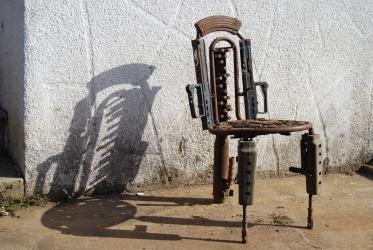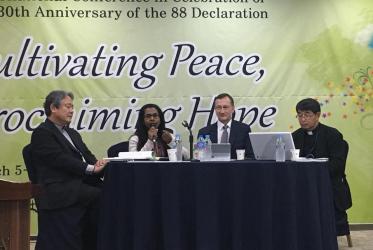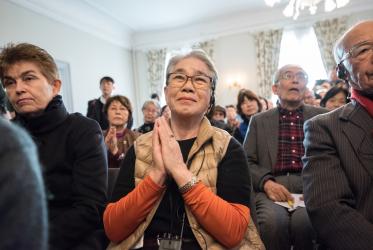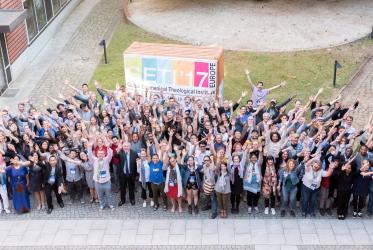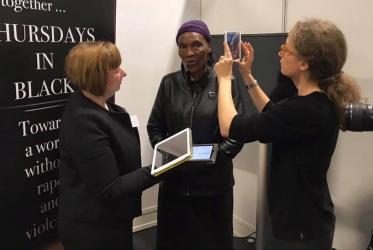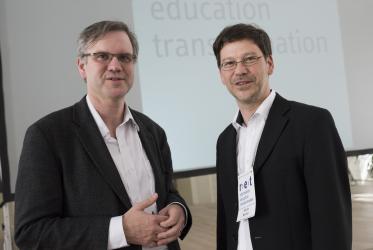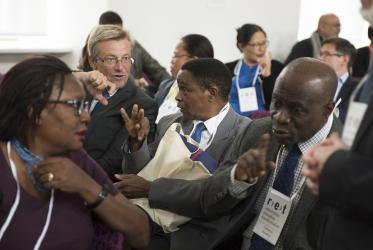Displaying 1 - 20 of 22
11 September 2023
Rev. Dr Hans-Ruedi Weber dies at 97
29 October 2020
Paving the way for ecumenical studies, learning English in Bossey
24 September 2018
WCC welcomes “powerful sign of hope” on Korean Peninsula
08 March 2018
Trying to do good for the world
18 December 2017
May we remember them well, with dignity and respect
14 December 2017
Nobel winners plan next steps for banning nuclear weapons
10 December 2017
Peacemaking “a great and compelling life task”
09 December 2017
Emily Welty: tide of hope for a world free from nuclear weapons
19 September 2017
“We are to pass on the mantle”
31 May 2017


